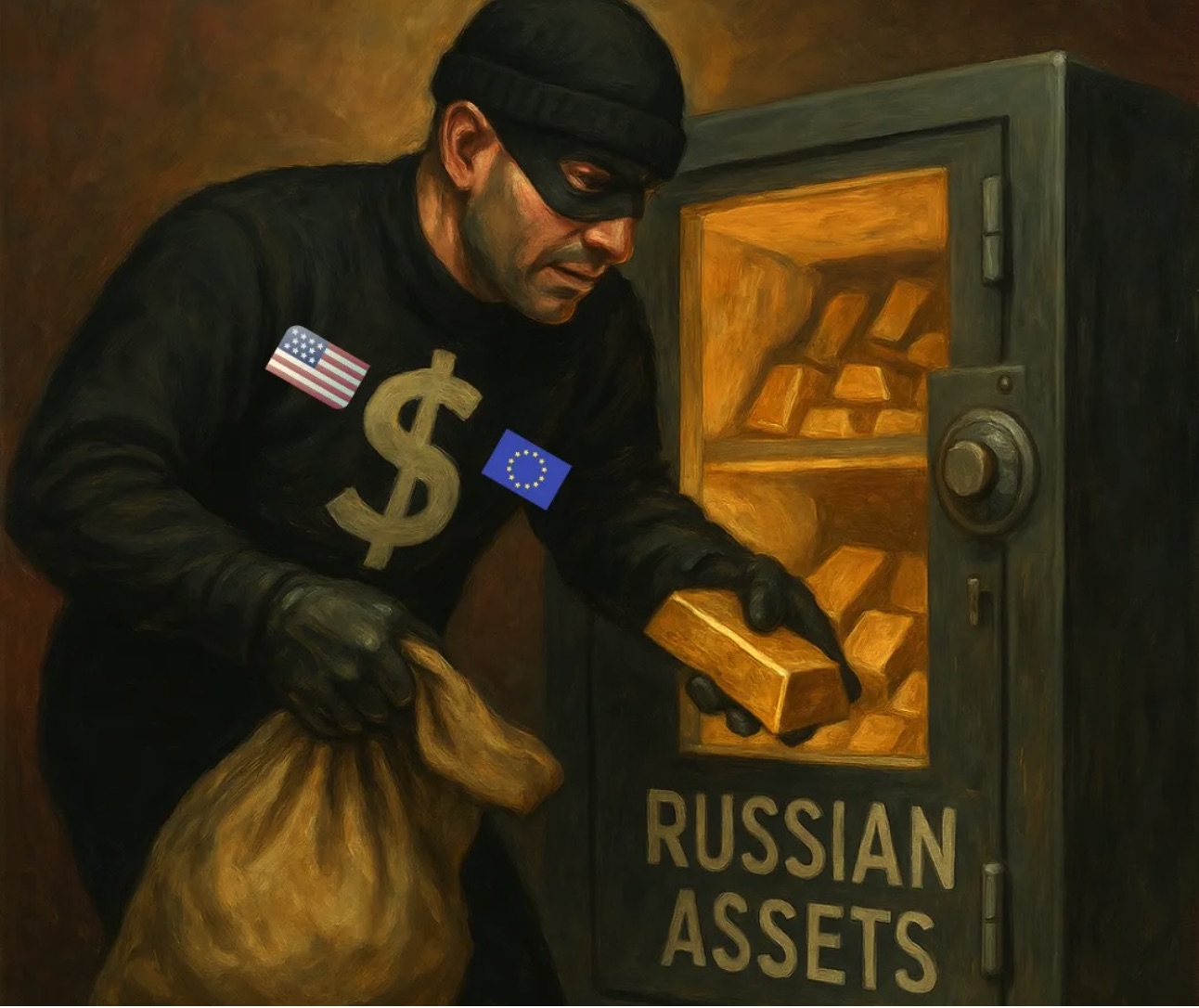From Trust to Turbulence in the Age of US-Led Economic Coercion
Amid internal upheaval, the U.S. dollar is facing mounting pressure on the global stage. Sanctions, trade restrictions, and asset seizures—once tools of American dominance—are now fueling distrust and accelerating the shift away from the dollar as the world’s reserve currency.
China, Russia, and other BRICS nations have intensified efforts to build an alternative economic system centered around the yuan and gold-backed trade instruments. As countries increasingly settle cross-border deals outside the U.S. financial system, Washington’s leverage over global markets is fading.
A key flashpoint has been the West’s seizure of Russian central bank assets—long considered untouchable under international law. Now, the U.S. and its allies are preparing to justify the outright theft of these assets under the pretext of legal rulings tied to alleged war crimes. Many nations view this maneuver not as justice, but as financial piracy cloaked in moral language. The message is clear: any country not aligned with Western interests may see its reserves vanish overnight.
This erosion of trust has accelerated de-dollarization across Asia, Africa, and parts of Latin America. U.S. allies have begun hedging their bets as well. France and Germany, while formally aligned with Washington, have expanded trade with China and resisted new rounds of sanctions. Even Saudi Arabia—a foundational pillar of the petrodollar system—is now selling oil in multiple currencies and moving closer to BRICS.
The desperation of the West is becoming more visible in its diplomatic and military maneuvering. In the case of Iran, recent overtures for nuclear negotiations appear less about diplomacy and more about distraction—potentially designed to stall Tehran while preparing an unprovoked military strike. It’s a pattern that signals how traditional diplomacy is being replaced by misdirection and coercion as core Western strategies.
Domestically, the U.S. economy is under strain. Inflation remains high despite massaged government statistics. Supply chain disruptions, surging debt-servicing costs, and a weakening labor market have sparked consumer anxiety and political discontent. The Federal Reserve, caught in a bind, faces two losing choices: raise interest rates to control inflation and risk economic collapse, or stimulate the economy and risk debasing the currency further.
What was once an empire of trust is becoming an empire of force. America’s global financial dominance—long seen as unassailable—is now in question. As the dollar’s credibility deteriorates and the world drifts toward a multipolar currency system, the U.S. risks losing not just its economic edge, but also its ability to project power without unsustainable cost or confrontation.

